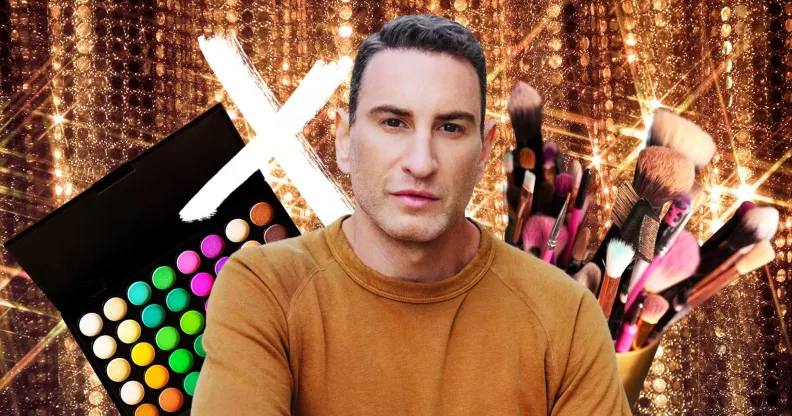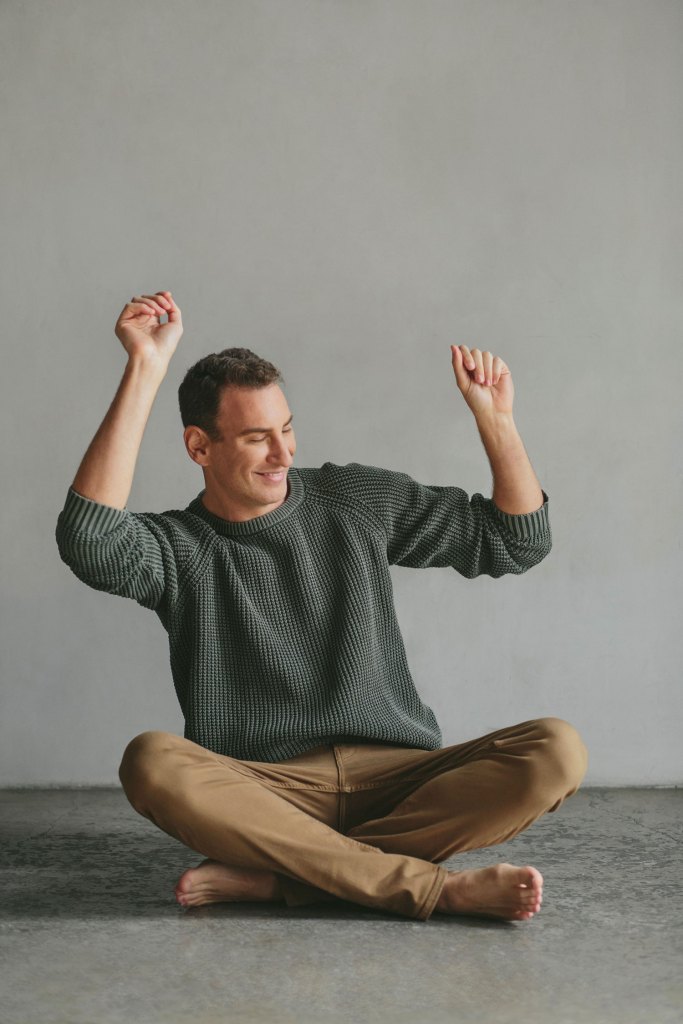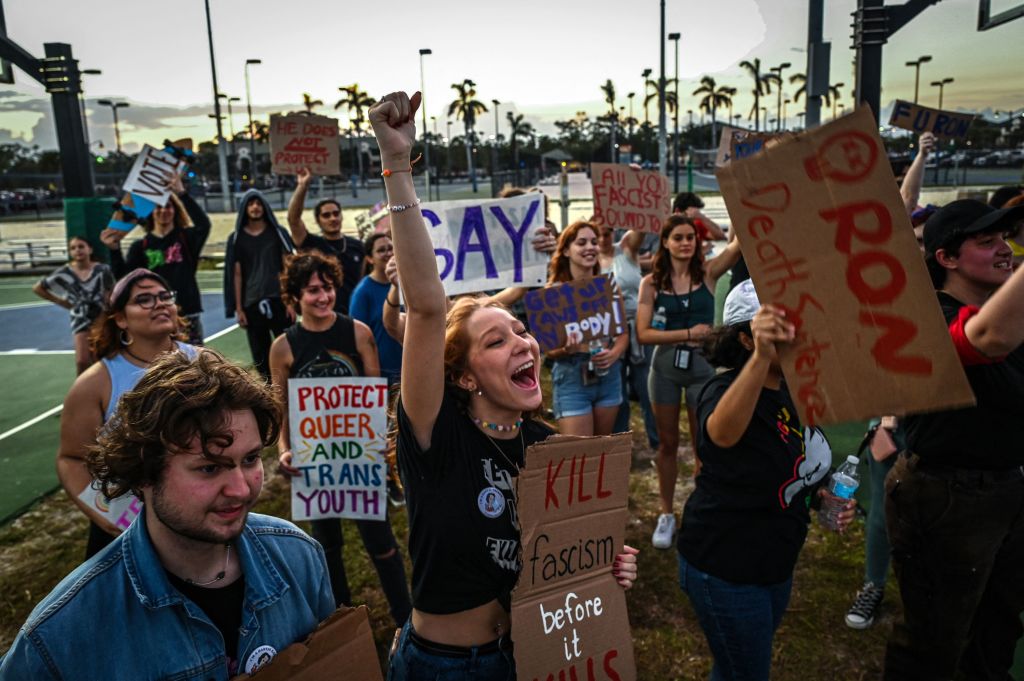Former drag queen and clinical psychologist on how drag bans affect queer people’s mental health

Dr Scott Lyons is a former drag queen turned psychologist. (Supplied/Getty)
Dr Scott Lyons is a clinical psychologist who has a unique, deeply personal perspective on drag.
Once upon a time, Scott performed as a drag queen to pay his way through grad school. This was before Drag Race had taken the world by storm, when the art form was still firmly the preserve of gay bars and Pride marches.
He performed all around the world, singing, dancing and performing in drag, but he has – mostly – left it all behind to work as a clinical psychologist.
“One of my one-woman shows was called Disney Titillations – it’s been scrubbed from the internet by my publicist,” Dr Scott Lyons laughs.
Performing as a drag queen was enlightening, but it was also a vital opportunity for Scott to explore his own identity and to express himself. The psychology behind drag is, unsurprisingly, not discussed quite as much as whether comedy queens or fashion queens should rule the roost, but that doesn’t mean it’s not important too.
As far as Scott sees it, drag is so alluring because it gives people permission to find the “full scale of humanity and playfulness” that they might not get to experience in their everyday lives.

In the same way a singer might take lessons to learn how to use their full vocal range, a drag performer can use the medium to find new layers to who they are, Scott explains.
“It gives us that permission or something that we already have – perhaps equality within us, maybe a little snappishness or a little attitude or a little playfulness, or curiosity or silliness that otherwise we wouldn’t be exploring in our daily life.
“There’s something really powerful about drag giving us permission in that way.”
During his drag career, Scott adored putting together wild, wonderful and fabulous costumes – he readily admits he was less good at makeup – but he still found power in the process of transforming himself.
“I think about it as [like] superheroes a little bit – how we might have a mask or a cape or something that protects our identity and allows us to do things that we otherwise couldn’t do.”
Drag bans stop queer people from being themselves, says Dr Scott Lyons
Drag gives people the chance to find out who they really are – but as an art form, it’s increasingly under attack. While RuPaul graces our screens for a sizeable chunk of the year, across the US, lawmakers are doing their best to halt drag in its tracks entirely.
Since January 2023, countless bills have been introduced at a state level across the United States seeking to stop drag performances. Tennessee became the first to pass a bill into law in March when it banned “adult cabaret performances” on state-owned premises or where children might see them.
It’s a terrifying time for drag performers, who have already had to contend with rising hate and far-right attacks – but it’s also going to directly contribute to poor mental health among queer people, Scott explains.
“Imagine gripping every muscle of your body and holding your breath and walking around the world. That’s what it feels like, or the exaggeration of it feels like, when we are not able to express our authentic self,” he says.
“There’s a way in which that actually has a physiological, inflammatory response. It’s like our body is inflamed by simply not being allowed to be who we are. There are numerous studies that show when we are held, when we are not allowed to be in our full expression, that it relates very significantly to depression and suicidal ideation.”
Scott was “not surprised” to see the wave of anti-drag bills that have hit the US in recent months. The psychological impact on queer people will be severe, but he’s also interested in understanding the psychological reasons why these bills have been introduced in the first place.

“People who desire power look for marginalised scapegoats and they create fear. Fearmongering is a way to maintain control and power,” he says.
“It’s a tale as old as time, we’ve seen it through religion, we’ve seen it through race and gender and sexuality, and so it’s unfortunately not a surprise, but it is really sad.”
He draws parallels between what’s happening right now and what happened during the Reagan era. Leaders who want power create “propaganda” about marginalised groups, stoke up fear, and then position themselves as the heroes who can save the day.
“The result of being a hero is that you have power and control,” he says.
Like most queer people, Scott hopes the intense focus on trans people and drag queens is a temporary focal point. The longer that focus persists, the worse things will be for the LGBTQ+ community.
“There’s an integral link between repression, stress and the festering of disease in our body, not just mental illness but actual physical disease,” he explains.
“It’s a serious consequence that is often overlooked but it’s not considered because it doesn’t matter to those who are trying to get control and power.”
Things are difficult right now for queer people in America, and the impact on mental health will be significant – but Scott says the LGBTQ+ community will not be silenced or shut away.
“It shows a certain resilience in the community … you might restrict certain laws but you actually can’t repress me. You will not shove me back in the closet.”
Dr Scott Lyons’ book Addicted to Drama is out now.
How did this story make you feel?

